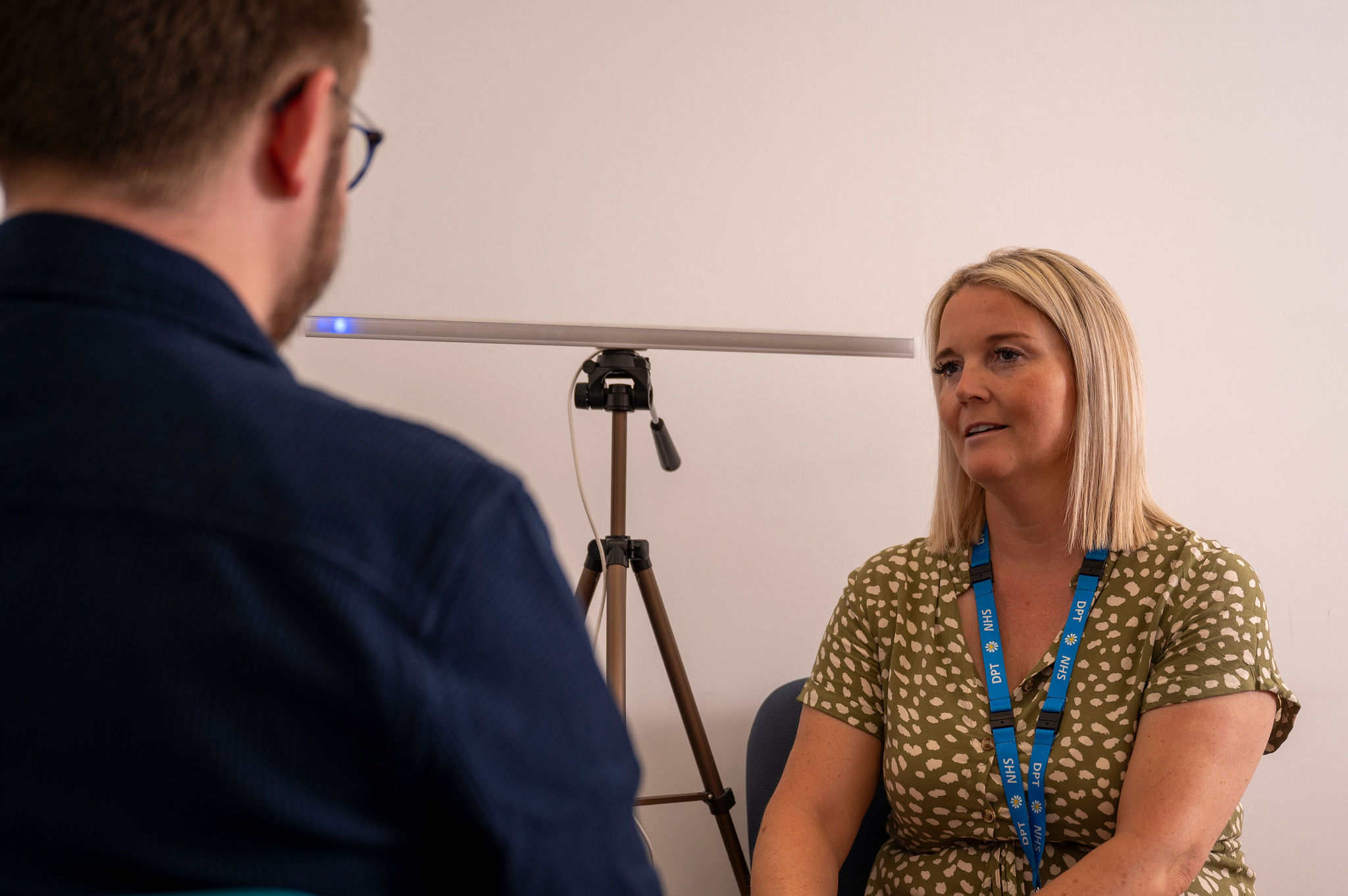Eye movement desensitisation and reprocessing (EMDR) is a talking therapy that has been developed to help people who have post-traumatic stress disorder (PTSD). People who have PTSD may experience intrusive thoughts, memories, nightmares or flashbacks of traumatic events in their past.
TALKWORKS therapists will discuss EMDR with you, if we feel it would be beneficial for your symptoms. EMDR can be a distressing process, so it is important to have a good support network of family and friends around you if you plan to try it.

What are the benefits of EMDR?
One of the key benefits of eye movement desensitisation and reprocessing therapy (EMDR) is that it helps the brain reprocess memories of traumatic events so the negative images, emotions and physical feelings they cause have less impact.
The therapy can help reduce feelings of helplessness, hopelessness, and anxiety, leading, to improved self-esteem, greater emotional stability, and better overall mental health and wellbeing.
What happens at an EMDR session?
Your EMDR therapist will talk with you about EMDR in order that you can make a decision about whether or not you feel this therapy is right for you.
Your therapist will work with you at your pace and make sure that you have some relaxation techniques which you can use to help you cope with any distress that you may experience in between sessions, before you begin the processing sessions.
An EMDR processing session:
- will involve recalling the traumatic event, although this is something you will work up to
- once you have brought the most intense part of the memory to mind, you will be asked to simply track the movement of the therapist's hand from side to side with your eyes
- eye movements are not always used; other forms of stimulation may include tapping on the hands or shoulders, or the use of headphones to introduce sound stimulation
- eye movements, taps or sounds are used to help the brain process the trauma memory
- your therapist will give you frequent and regular breaks throughout the session to check on any new thoughts and feelings that are arising and to track the changes you are making.
As EMDR enables the processing of traumatic events, people often describe feeling emotionally and physically tired after sessions or in-between session. It is important that you take care of yourself and discuss any experiences with your therapist, when you next seen them.
How TALKWORKS can help
Many of our patients who have undergone EMDR therapy tell us how it has changed their lives and given them hope for the future.
“After an initial assessment and conversations with a therapist, we came to the conclusion that I was suffering from severe PTSD (post-traumatic stress disorder). It was recommended that I undertake a course of EMDR. I spoke to friends who work in mental health who told me this often works for people like me so I decided to try it.
I had 16 virtual 1:1 sessions. The practitioner was great, she was so understanding. Week by week we processed the memories and the difficulties that they caused at home and at work. Over 4 months I learned that I could put the experience behind me and get back to more normal life. I learned to enjoy things again and that I was a capable professional.” Read Anthony’s story
EMDR therapy:
- is offered usually on a weekly basis, typically for between 12-16 sessions.
- most sessions are 60 mins, but EMDR can involve some slightly longer sessions
- is designed to help your brain process or ‘digest’ the trauma memory so that it is stored away in the past with all your other memories where it cannot have the same impact on you
- can in most cases be used alongside any medication your doctor may be prescribing for you
- helps you get your life back to how you want it to be
- usually does not involve any home practice or any additional tasks to be completed between sessions
If you think you may have PTSD, and feel ready to access help, then please contact us. The sooner you take the next step and contact us, the sooner we can help you to feel like ‘you’ again.
To get in touch with us:
If you prefer, you can speak to us over the phone by calling 0300 555 3344 (our phone lines are open Monday to Friday from 9am - 4:45pm), or you can make an appointment with your GP to discuss how we can help.

